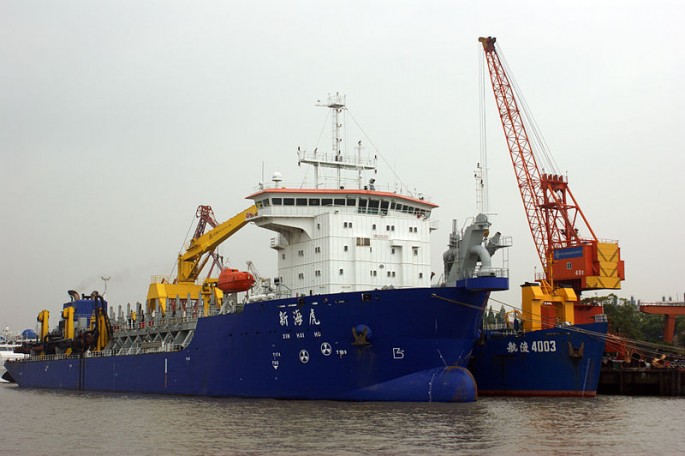With machines replacing manual labor in most ports, the traditional dock songs that workmen once sang have disappeared, but retired dockworkers and music scholars are working to bring them back, as reported by Shanghai Daily.
Two groups of retired dockworkers from Pudong New Area and Yangpu District and the Shanghai Conservatory of Music want to create a music and video archive to try to recapture the lost sounds the tell a portion of the Huangpu River's history.
Han Weiguo is one of the former dockworkers who are part of a musical troupe that performs old dock songs at the Tangqiao Community Cultural Center in Pudong. He recalls how he thought the songs were crazy when he first started working at the docks 44 years ago.
"I thought it was funny that people should be singing meaningless stuff while working," said Han.
Han later learned that the songs improved the pace of the work and camaraderie among the workers.
"The purpose was to synchronize steps when a few people were working together to unload and load freight that sometimes weighed hundreds of kilograms," he said. "The singing simply ensured the safety of the workers."
"History has it that 16 dock workers in Shanghai once used eight sticks to carry and deliver something that weighed two tons, and that couldn't have been done without work songs," said Li Zhihao, a researcher with the Shanghai Mass Art Center, which has been studying maritime work songs for several decades.
Songs are performed in various Chinese dialects because workers came from all over the country.
"Most of the manual laborers were from northern Jiangsu and Hubei Provinces," said Han. "Those from the city of Ningbo were among the better educated and served as taskmasters or bookkeepers. They ordered workers around, but they gave orders by singing, too."
Han said there were even "Chinglish" words in some songs, reflecting influence from other counties.
Further up north in the Yangpu District, 14 former dockworkers formed a song troupe in the Dinghai community in 2013. They have recorded 20 songs from a songbook compiled in the 1960s.
Wang Tianya, vice director of the Culture Office of Dinghai, said that retired dockworkers were very important to the project.
"Sometimes when the singers belted out notes according to the scores, Jia Zhihu, our only master of work songs, would shake his head and say the tune wasn't true to the original," said Wang.
Most of the members of the Pudong and Yangpu troupes are over 65 years old. Their goal in the project is to spur interest in folk art among young people and preserve the intangible cultural heritage of their generation.



























